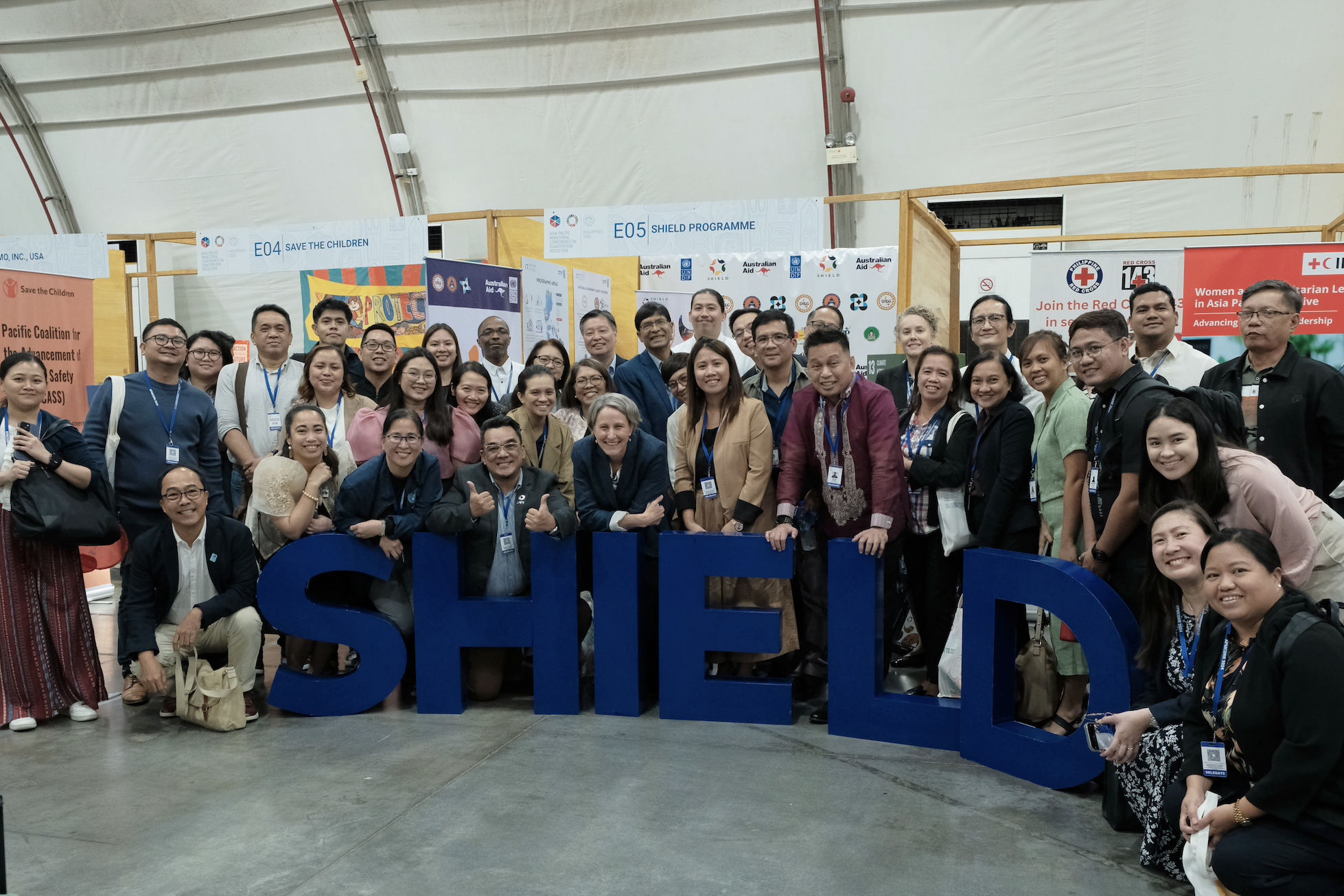Australian Climate Change Ambassador, UNDP highlight local resilience actions at APMCDRR 2024
October 16, 2024

PASAY CITY, Philippines —The Strengthening Institutions and Empowering Localities Against Disasters and Climate Change (SHIELD) Programme, the Australia-supported flagship disaster risk reduction and climate change adaptation initiative of UNDP Philippines, showcased local resilience best practices, learnings, and successes on the regional stage at the Asia-Pacific Ministerial Conference on Disaster Risk Reduction (APMCDRR) from 14-17 October 2024.
The SHIELD Exhibit Booth at the APMCDRR Marketplace presented how community-driven efforts can inspire broader action across the Asia-Pacific region. It demonstrated key aspects such as program convergence in data and tools, decision-support systems, and financing. Additionally, it featured the resilience network built through Sambayanihan's collaboration and partnership model in various provinces and the program's engagement with national government agencies on policy, planning, and programming.
Highlighting the event is a visit by Australia's Ambassador for Climate Change Honorable Kristin Tilley to the SHIELD Exhibit Booth which underscored the Australian Government's commitment to the SHIELD Programme. Australia invested AUD 18.6 million (PHP 651 million) in the SHIELD Programme from 2021-2028 to contribute to the Philippines’ resilience priorities in tackling the worsening impacts of disasters and climate change. Ambassador Tilley was joined by the United Nations Development Programme (UNDP) Philippines Resident Representative Dr. Selva Ramachandran, Deputy Resident Representative Edwine Carrié, and SHIELD Programme Manager Jacqueline Miel-Soliguin, together with national government partners represented by Director Anna Liza Bonagua of the Department of the Interior and Local Government (DILG), Director Jose Harry Barber of the Office of Civil Defense (OCD), Director Teresito Bacolcol of the Philippine Institute of Volcanology and Seismology (PHIVOLCS), Undersecretary Henry Yap of the Department of Human Settlements and Urban Development (DHSUD), and the Sambayanihan local stakeholders represented by local government units from Eastern Samar, Northern Samar, Agusan del Norte, Quezon Province, the SHIELD Program Team, and the consortium partners – National Resilience Council, UN-Habitat, and the Philippine Business for Social Progress.

Ambassador Kristin Tilley reaffirmed the Australian government’s commitment to climate and disaster resilience action through the SHIELD Programme and expressed its dedication to deepening the work in the Philippines: "The SHIELD Programme exemplifies the strong partnership between Australia and the Philippines in tackling disasters and climate change. We are working together to strengthen institutions and empower local communities to build resilience from the ground up. I am very pleased that Australia is supporting the Philippines through locally-led approaches to this global challenge.”
Dr. Selva Ramachandran, emphasized the significance of multistakeholder partnerships in mobilizing financing for community resilience: "The SHIELD Programme offers an integrated and inclusive collaboration among government, civil society, marginalized sector groups, and international partners in bridging capacity gaps and bringing funding resources closer to the vulnerable communities. We are protecting livelihoods and helping people become better equipped to deal with climate shocks. With Australia's generous support, we have now reached some of the communities that urgently need interventions and continue to deliver lasting positive impact."
During the conference, the SHIELD Programme team and partners shared the Philippine experience and insights on unlocking community-driven pathways for resilience with global experts and conference delegates.
___
SHIELD is a multi-year partnership covering 11 provinces and two regions in the Philippines that are among the most vulnerable to disasters and climate change impacts. It is implemented by the UNDP Philippines and consortium partners: Philippine Business for Social Progress (PBSP), National Resilience Council (NRC), Consortium of Bangsamoro Civil Society (CBCS), and United Nations Human Settlements Programme (UN Habitat), together with government partners: the Department of the Interior and Local Government (DILG), Office of Civil Defense (OCD), and Department of Science and Technology (DOST), with generous support from the Australian Government.

 Locations
Locations

